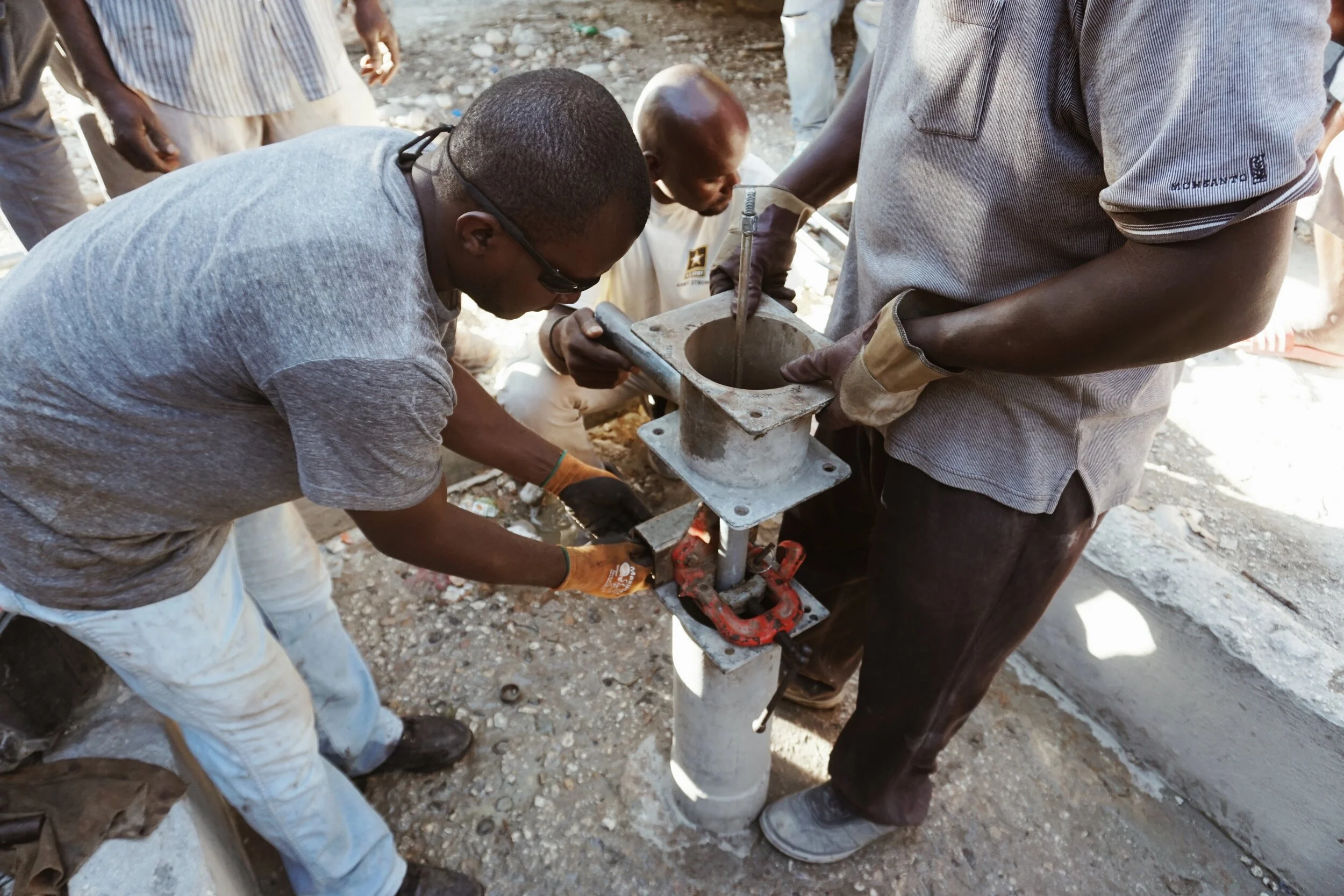Wala - Meeting with the Chiefs
The village of Wala from the road.
The most interesting story I had to bring home with me from Panama was that of meeting with the chiefs in Wala. It’s not uncommon to see the stories of folks who travel overseas to encounter the smiling faces of foreign children and poverty like they’ve never seen before – but this felt like something straight from the fantastic tales I read as a child. Some moments in life gain a bit of excitement and adventure as we look forward to their coming or as we look back with nostalgia. This moment, however, welled up with these feelings in the present. This felt like an adventure.
Our clan of four (Rachael, Ben, Teo, and I) made our way into the center of the village, and entered a wooden hut that was similar to the houses all around us, but perhaps twofold in square footage. Inside, there were wooden benches all around the perimeter parallel to the walls. These benches surrounded the focal point, which was the chiefs. Previously I asked Rachael if it would be rude to take pictures during this meeting – she likened it to strangers walking in on a board meeting and snapping photos. So with this analogy in my head, I expected the village chiefs to be seated across from us, perhaps even behind some kind of desks or tables. But instead, the seven chiefs laid back in seven hammocks in the middle of the room. They were tied about ten feet above our heads, but dipped down to only a couple feet above the ground in front of us. We sat on a wooden bench at their feet, which we were told was a place of honor.
These men were a sight to behold. Each had a black fedora holding a variety of feathers upon their heads, which was clearly a sign of status. They all wore button-up shirts, and some even had neck ties. And all the men were barefoot. Many other men from the village sat in the benches around the perimeter, and kids would stop for a few moments as they walked by the doorways to gaze in curiously. And so we waited somewhat quietly, staring at the bottoms of bare feet propped up in their hammocks.
Eventually the meeting began (as I learned, Latin America promptness is not nearly as uptight as American promptness). Ben introduced us in Spanish, which Teo then translated to Kuna. Then the chief would respond in Kuna, which Teo would translate to Spanish, which Ben would translate to English. It took very little time for this process to become wearying, and thus it demanded that I intentionally focused on looking alert. Although, much to our amusement, many of the chiefs did not attempt to put up such an appearance. As the dialogue continued, some chiefs got up to have side conversations or work on something while they listened. Others simply fell asleep. Most of the conversation was led by their second-in-command, as their head chief was temporarily in another village.
Water tests from Wala. All the dots are bacterial colonies from fecal contamination.
While the triple translating did drag on, it was also clear how grateful the chiefs were to have clean water systems offered to them. They understood (as many around the world do not) that the water from their river makes them sick. One problem, however, came up at a disappointing frequency: groups had come in the past, they said, and they never followed through to see their project completed. Providing people access to clean water is one of my wife’s biggest passions, and this problem aggravates her to a degree I’ve seen little else do – foreign aid does not mean flying in, dropping off gifts, and flying away. Rather, if we are to implement systems that are effective and actually helpful, there must be follow through and it must come with education. I am not the voice to speak well into these matters, but it was clear that this was a community burned by poorly planned charity on multiple occasions.
So, as Rachael worked through clean water plans with these chiefs, they asked us several times for our word that we would finish what we started. Rachael assured them that we were committed to seeing the job done, and it didn’t take long to see in their faces that they believed us. The interim head chief even gave us a kind and unexpected promise – that if we were true to our word, we would have our picture taken and hung up in that meeting place (which looked as though it would be the first piece of decoration apart from the hammocks).
After many handshakes and head nods and hours on wooden benches (I learned sor nun maket is Kuna for “my rear hurts”) and words I didn’t understand, we made our way out of the building having made the promise to see the mission of Solea Water done in Wala. It was an experience that breathed life into me – getting the process started to provide water to a community that had come so close several times already. So pray with me, friends, as we move forward, that we wouldn’t just be another group that makes empty promises or gets caught up in the moment without any follow-up, but that Solea Water would finally be able to bring clean water to the beautiful village of Wala.

















